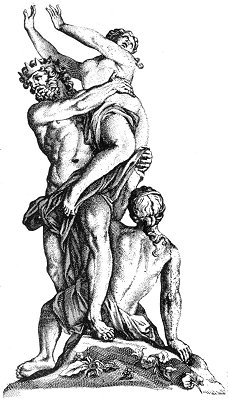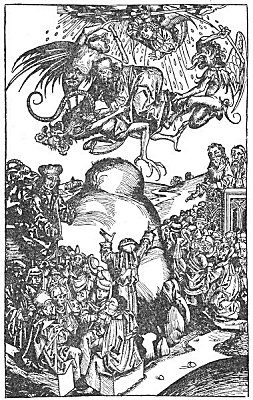“He who wishes to labour for the happiness of mankind, to add to the content and rest of the human species, to decrease their dissatisfaction (these are literally the words of our Antitheosophical Sophister), must scrutinize and weaken those principles which trouble their rest, contentment, and happiness. Of this species are all those systems which are hostile to the ennobling and
p. 507
perfecting of human nature; which unnecessarily multiply evil in the world, or represent it as greater than it really is: all those systems which depreciate the merit and the dignity of man, which diminish his confidence in his own natural powers, and thereby render him lazy, pusillanimous, mean, and cringing: all those also which beget enthusiasm, which bring human reason into discredit, and thus open a free course for imposture: All the Theosophical and Mystical Systems; all those which have a direct or indirect tendency to such Systems; in short, all the principles derived from Theosophy, which, concealed in our hearts, often finish by leading men back to it, belong to this class.”
In the course of his instructions, the reader is not to expect that Weishaupt will make any exception in favour of the revealed Religion, not even a hint at such an exception is to be seen.—The Religion of Christ is represented as a medley of the reveries of Pythagoras, of Plato, and of Judaism. It is in vain for the Israelites to believe in the Unity of God, in the coming of a Messiah; it is in vain to assert that such was the faith of their forefathers, of Abraham, Isaac, and Jacob, long before they entered Egypt or Babylon; it is in vain to prove, that the adoration of the golden Calf, or of the god Apis, was punished by the Almighty as a prevarication of their Religion: Nothing will serve the Sophister; he will declare in his corrected Code, that the Religion of the Jews was but a modification of the reveries of the Egyptians, of Zoroaster, or of the Babylonians. To correct his adepts, he teaches them to cast aside the Creation as a chimera unknown to antiquity, and to reduce all Religion to two Systems—The one, that of matter co-eternal with God, a part of God, proceeding from God, cast forth and separated from God, in order to become the world—The other, matter co-eternal with God, without being God, but worked by God, for the formation of the universe. On these foundations he builds a general history of all Religions, and makes all appear equally absurd. The reader might be tempted to think that these lessons had been composed before the hegira or rather proscription of the author of Illuminism. They may have been compiled for one of those discourses which he declares to be of more importance than that of the Hierophant in the degree of Epopt.—He precisely follows the course which Knigge represents as the grand object of the last mysteries. He makes, after his fashion, a general compilation of all the schools of Philosophism and of its Systems; and hence he deduces Christianity and all Religions. The result of the whole is, that all Religions are founded on imposture and chimera, all end in rendering man cowardly, lazy, cringing, and superstitious; all degrade him, and trouble his repose. 13 And it is thus that this Sophister, under pretence of his justification, daringly acts that part in public which before he had only ventured to act under the cover of his mysteries. He sallies forth from his baleful abyss but to proclaim to the world what heretofore he had only hinted to his adepts in private,—that the time was at length come for the overthrow of every Altar, and the annihilation of every Religion.
Are any further proofs necessary to demonstrate the object of the grand mysteries? The testimony of Knigge cannot be objected to, nor can Knigge pretend or wish to mislead Zwack when confidentially corresponding with
p. 508
him. Both had signed the agreement of the Areopagites respecting the compilation of the degrees of Illuminism. 14 Let us then attend to these two adepts—Philo-Knigge has been exhibiting all that he has done, according to Weishaupt’s instructions, in the degree of Epopt, to demonstrate that Christ had no other view than the establishment of natural Religion, or, in the language of Illuminism, the rights of Equality and Liberty. Knigge then continues: “After having thus shown to our people that we are the real Christians, we have only a word to add against Priests and Princes. I have made use of such precaution in the degrees of Epopt and of Regent, that I should not be afraid of conferring them on Kings or Popes, provided they had undergone the proper previous trials. In our last mysteries we have to acknowledge this pious fraud; to prove, upon the testimony of authors, the origin of all the religious impostures, and to expose the whole with their connections and dependencies.” 15

Moe is the founder of GnosticWarrior.com. He is a father, husband, author, martial arts black belt, and an expert in Gnosticism, the occult, and esotericism.



